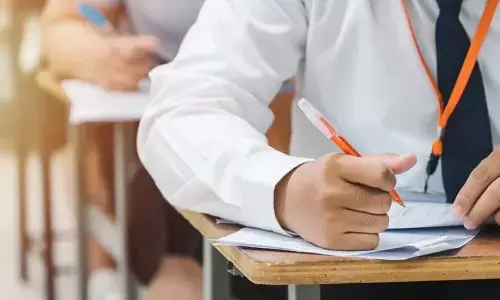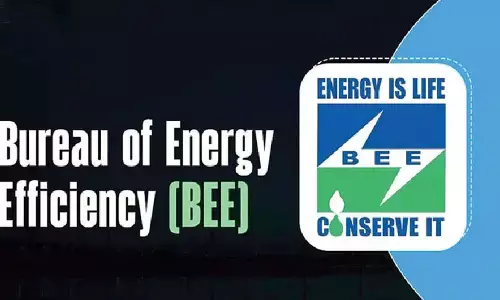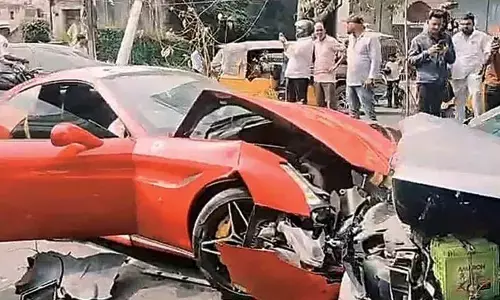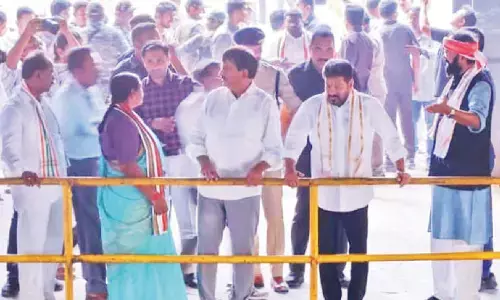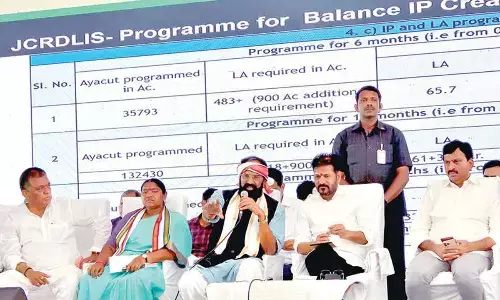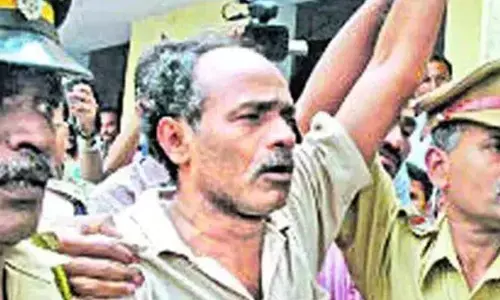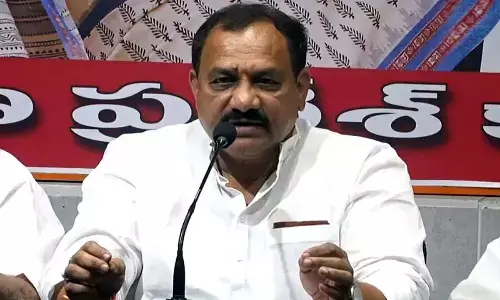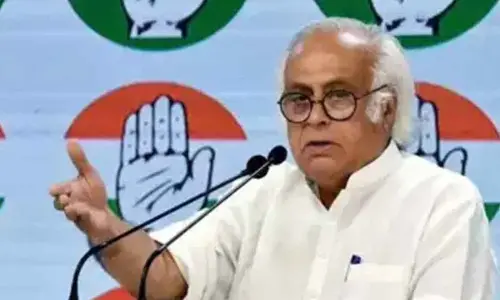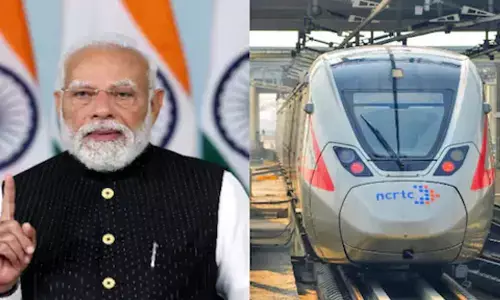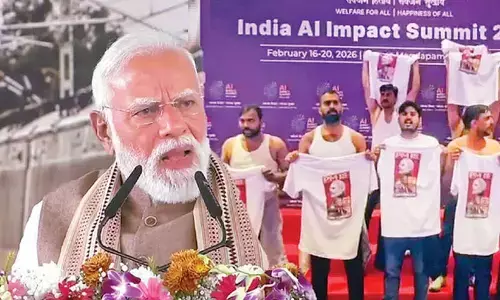Do we really value our constitutional spirit?
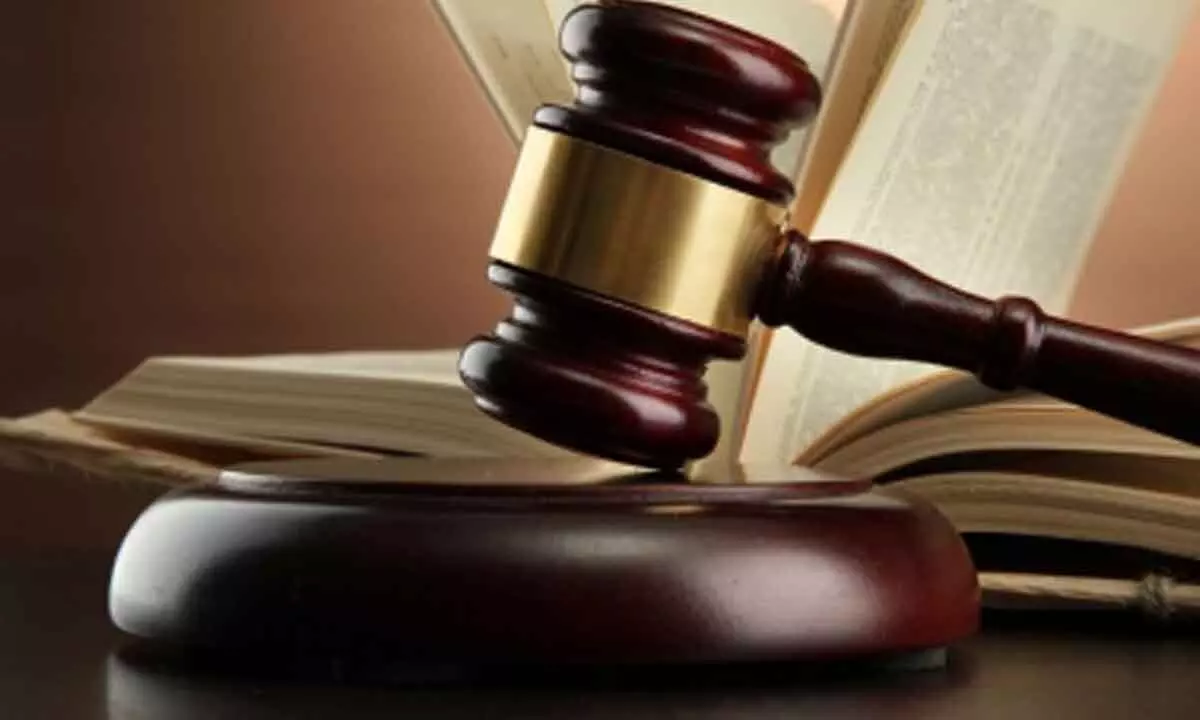
Like the United States of America and most other democracies, Indian Constitution too, begins with a preamble which sums up its object and spirit.
Hyderabad: Like the United States of America and most other democracies, Indian Constitution too, begins with a preamble which sums up its object and spirit. The page preamble is considered as sacrosanct and unalterable. However, the preamble drafted by Pandit Jawaharlal Nehru and incorporated in the Constitution was ‘amended’ by Indira Gandhi in 1976, the period of infamous Emergency by adding two words namely ‘Secular’ and ‘Socialistic’. And both the preambles were made in the name of ‘The people of India’.
It goes without saying that all provisions subsequent to the preamble must adhere to the lofty ideals enshrined in the preamble. The State ruled by any political party or combination of parties cannot be allowed to be lax in this regard. Further, the State machinery and judiciary also do have the solemn duty to see that the ingredients of the preamble are not only enforced with iron will, but also to see that the elements which go against them are severely punished.
Going by the contents of the preamble, the people of India have resolved to constitute India into a ‘Sovereign’ ‘Socialist’ ‘Secular’ Democratic Republic and to secure to all its citizens:
‘Justice’, social, economic and political;
‘Liberty’ of thought, expression, belief, faith, and worship;
‘Equality’ of status and of opportunity; and to promote among them all
‘Fraternity’ assuring the dignity of the individual and the ‘unity’ and integrity of the nation.
Sadly, over the years the cherished values of these landmarks have been gradually but definitely eroded. The political leadership of different spectrums has by and large failed to live up to these beautiful ideals of our democracy. The main reason is that we have put the cart before bullocks. Needless to say while the lofty ideals contained in the preamble are like bullocks, the democracy is the vehicle or cart of progress of the nation. The behaviour of our elected representatives in Parliament and assemblies raises serious concerns about the majesty of our democratic system. Right from the verbal and physical fights to the attempts to breach the security of the very temples of democracy speak volumes for the devaluation of our morals in public life. Unfortunately, ignoring the available best stuff, the political parties with their eye solely on the victory in the elections, give tickets even to the people with questionable character. And still worse, such unworthy elements get elected.
While sporadic outbursts of communal frenzy and violence are understandable for a country with huge population of over 140 crore, these disturbing tendencies get a full blow during election time. The acrimonious political debates in public meetings as well as print and electronic media cross all limits of decency, leave alone the ideals of fraternity and unity enshrined in the Constitution. In short, the ideals contained in the preamble remain just on paper.
Indeed, this is not a happy scenario, for us as well as for our future generations. The policies followed by the successive governments hardly promote the spirit of unity, fraternity, equality and real justice to the people of this great country because of the coloured views of the political parties. The policies of discrimination, appeasement , the dangerous trend of offering free-bees and undue encouragement to the sections extending support in elections are a great hindrance to the flourishing of the democracy. To put it plainly, both our mindset as well as the Constitution itself require a thorough overhaul. It is good to have an ideal Constitution but for that we need equally the ideal citizens. Unless this much needed synchronization is achieved, the elections will remain a mere formality.
SC ISSUES GUIDELINES FOR PROPERTY ACQUISITION
In a landmark judgment, the Supreme Court on May 16 issued seven sub-rights which must be followed by a public authority while acquiring a private property under Article 300 -A of the Constitution.
A bench comprising Justice P S Narasimha and Justice Aravind Kumar in a case titled, Kolkata Municipal Corporation & Anr. v/s Bimal Kumar Shah & Ors., held that there are seven sub-rights which are foundational components of Article 300 -A and therefore, must be adhered to. The bench added that non- compliance of these sub-rights will amount to violation of the right to acquire property under Article 300 -A, it being without the authority of law.
The seven sub-rights to serve as the guidelines propounded in the judgment are:
n The right to notice by the present owner;
n The right to be heard the objections to the acquisition;
n The right to a reasoned decision;
n The State’s duty to acquire only for public purpose;
n The State’s duty of restitution or fair compensation;
n The owner’s right to an efficient and expeditious process; and
n The right of final conclusion
NEW SCBA PRESIDENT
Senior advocate Kapil Sibal has been elected president of the Supreme Court Bar Association (SCBA ) at the elections held on May 16. Sibal, a former Law Minister and three times President of SCBA, took a plunge into election fray just a day before the closing day for filing nominations. With the impressive vote tally of above 1,000, Sibal reiterated his resolve to serve the legal fraternity to the best of his capacity. Rachana Srivastava has been elected vice-president.
Dr. D Y Chandrachud, the Chief Justice of India, greeted Sibal for his impressive victory.
ACTOR JACKIE SHROFF CLAMS EXCLUSIVE RIGHTS ON ‘BHIDU’ (PARTNER)
Hindi film star Jackie Shroff has approached the Delhi High Court claiming the exclusive rights over his famous filmy dialogue ‘bhidu’ (partner) besides other personality -elated rights and sought to restrain the entities using the same for commercial purposes without adequately compensating him.
The court, after hearing the arguments of the petitioner, granted ad interim order in favour of the petitioner restraining the respondent entities from infringing the petitioner 's rights. The precedents of actors Amitabh Bachchan and Shahrukh Khan were cited by the petitioner to buttress his argument for the relief.


